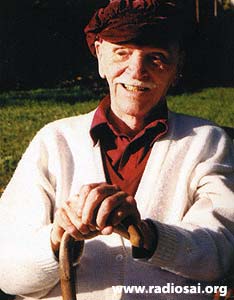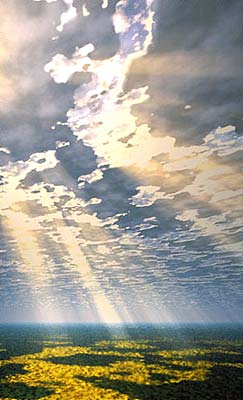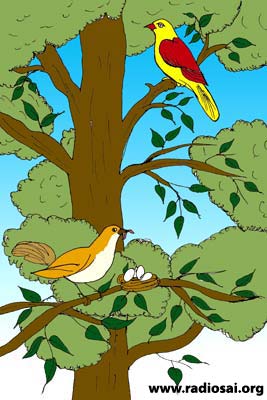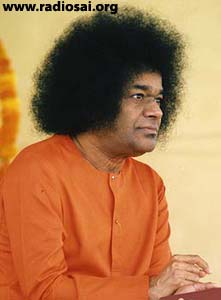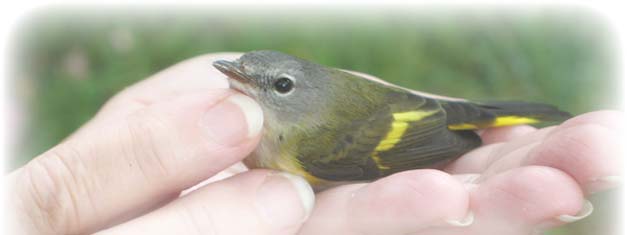 |
 |
 |
Volume
6 - Issue 08
AUGUST - 2008 |
LOVE AND LIBERATION
"Forgive us our trespasses as we forgive those who trespass against us." These well-known words from the Lord's Prayer have a deeper implication than it may at first appear. In His mission on earth, Jesus showed that there was a very close connection between the forgiveness of trespass, or sin, and the healing of diseases. After healing somebody, He would say, "Your sins are forgiven. Now go your way and sin no more." The Need to Forgive
At the healing centre of a church I know in Australia, the sick person is told by the Christian priest in charge that before any healing can be accomplished, the patient must ask God for forgiveness and prior to that he must forgive anybody who he thinks has sinned against him. This forgiving of those who have trespassed against him will, no doubt, involve a search back through many years to unearth anyone against whom he may still feel some resentment, hidden anger or any other signs of non-forgiveness. Having located the person against whom he holds any of these negative emotions, he must declare sincerely in his heart and mind that he truly forgives him. But such a declaration of forgiveness, if he also says in his mind, "But I cannot forget", is not true forgiveness. True and effective forgiveness, includes forgetting, but the memory of some wrong done may exist somewhere in the mind. It is not as easy as cleaning a word from a slate, or erasing it from a piece of paper. In forgiving those who have trespassed against us, we must effectively forget it, by never again dwelling on the wrongs we think have been done against us. Until this is accomplished sincerely, we cannot expect the Divine One to forgive our trespasses or sins.
Some patients ask, "Does this mean that God is unable to forgive us until we have truly forgiven all those who have trespassed against us, or is it that He will not?" We must remember that God is omnipotent and can therefore do anything He wills to do. Because as well as being omnipotent, He is also omniscient and compassionate, He will answer any prayer that does not go against the ultimate spiritual welfare of the one who prays. Why then this requirement that we must forgive before we are forgiven? And why is the whole process of forgiving and being forgiven essential before the truly effective healing of a person's disease? Understanding True Love To understand this, we must take a penetrating look into that which we know as divine, unconditional love. We must be careful not to confuse such a love with the so-called romantic love that comes as a result of Cupid's irresponsible arrow-shooting. This love is an emotional state that keeps a man and a woman in a state of constant agitation, a state of great joy and ecstasy followed by misery and sorrow. Even so, romantic love between man and woman may be an echo of the real thing because it does bring some moments, a few flashes of the great bliss that lies above the passing joys and pains. Thus, in a sense, it is a promise of the true love that will someday come. Perhaps, the best echo in man and in other animals of the divine love, for which we are forever searching, is what we call mother-love. This, at its best, is completely unselfish, giving-and-forgiving. It demands no return in its purest state, yet like God Himself, the mother does enjoy a response of love for love. Mother-love is certainly brave, even warrior-like in its protectiveness of its offspring. I have seen mother geese attack big farm horses that have strayed too close to the young goslings. The mother goose will face almost any danger to shield her young from harm.
When I was a boy I thought that mother magpies went a bit too far in this. If I inadvertently came too close to a tree where the baby magpies were being hatched out of their shells in some high-up nest, I was attacked by mother magpie from the air. Other birds, including plovers, took the same protective, aggressive action against boys whom they thought were likely to steal their eggs. Such love in human beings is equally strong and lasts longer. It can, however, in time become tainted. It may become more attachment than love, sprouting selfish tentacles to contaminate the original selfless love of the mother. Is it possible, we wonder, to find somewhere that pure selfless never-changing love that forgives and gives, and asks nothing in return? Yes, it is possible to find and experience that love. First, let us try to understand something of what it is. As the great seer-poet Dante said, "Love is the energy that moves the Sun and the other stars." In fact, it is the primal power that created the universe and holds it together as one unit or system. It could be called the great cosmic magnet that keeps the wheels of the cosmos turning. As Swami says, God is Love and the energy He emanated in creating the universe, the premier energy, the primal energy to begin creation and hold it together, is love.
In Sanskrit, this pure love of God is called prema, and in the fullness of time, this divine magnet which we call love draws all things back into conscious oneness with the great Creator. Those, who have eyes to see, witness its reality around them as the inner-truth of the one within the many. Their eyes may fill with tears as their inner-vision apprehends this essence of divine oneness in the beauty of a flower, or a cloud, or the words of a poem. But, above and beyond these occasional flashes of the great truth, there is a way to experience the flow within one's being of this primal prema, or divine love. That is, to come within the aura, or the influence, of one who may be called living divinity, for such a one is a veritable fountain of love. Sri Sathya Sai - Living Avatar of Love
The greatest of these in my own experience is the living Avatar, Sri Sathya Sai Baba. Undoubtedly, there are others on earth today who can, to some degree, as Baba does in full measure, open the human heart to release the flow of love that is waiting there. It is the wonderful influence of such Godmen that finds and opens the buried spring of love, pure unconditional love, that is hidden in every person's heart. But, of course, not everybody who has set his feet on the spiritual path will have the good fortune of meeting one of these divine surgeons of the spiritual heart who will bring forth the flow of love. Perhaps, it is safe to say that the majority will not. Therefore, there must, surely be some other way. Yes, there are several. For one, a deep study of the philosophy concerning the reality and truth of divine love is of great help. We must understand that this prema is the primary force within the universe and is the great magnet that holds all in oneness, finally bringing all into our realisation of this unity with its attendant felicity and never-ending yet ever-changing bliss.
With this understanding of the mind and even with slight glimpses, passing experiences of the divine love in our hearts, we will do all we can to practise and promote this important power of love in our lives. How do we do that? As the old French bishop said to the young priest, about this puzzling question, “You learn to walk by walking, you learn to ride a bicycle by riding one. You learn to swim by getting in the water and trying until you learn. There are many things you must learn just by doing them, and loving is one. You learn to love by loving. The more you practise loving, the more love you will develop, until in the end you will be a master in the art of loving." Practising the Presence of Love That is the key. Realise that it is the most important thing in your life and begin to practise it on your fellow-men. Start with those who are easy to love. In the end you will be loving those to whom you are indifferent, and eventually even hate will be replaced by love. Furthermore, this trickle of love for our fellow-men can grow into a full stream through heart-felt worship and devotion to one of the princes of love no longer in the body. Two such are Christ and Krishna. Calling on their hallowed names and picturing their forms will help release the pent-up divine love in the human heart.
Finally, we should be aware that, in our own individual divine plan to love not only all of humanity but all of life, forgiveness is the greatest builder of love. Forgiving others and being forgiven by God repairs the broken channels through which the unifying and healing streams of love are meant to flow. In this divine business of forgiving there is one aspect that we should try to understand and remember. You may have heard people say that it is important to forgive ourselves. That is true but who forgives whom in ourselves? The social science of psychology divides us into many different parts, the number and names of these depending on the particular system of psychology we study. Divine science divides the human being into two main parts. These are, the lower self, usually called the ego, and the high Self, being synonymous with the God within. These two inhabit the one human body. An interesting analogy is shown in the Indian story about two birds which live in the same tree. One has his nest and his existence on the lower branches. He is a very busy little bird, following his instinctive life of food-gathering, mating and fighting the enemies who want to usurp his territory. Sometimes he is happy, at times he is angry and sometimes tragically sad. He catches in his active lifestyle occasional glimpses of another bird living in the thick branches of the tree above him. This bird of the shining plumage seems to live a very calm and contented life, never fighting with other birds over territory or morsels of food. Though in the same tree, this 'top bird' seems to live in a different world. His songs are full of joy, flowing from him, naturally. In time, the 'lower bird', by comparison, sees his own little life as a continual struggle on the treadmill of desires. He longs to be like the shining bird, the calm, beautiful, wise bird on the lofty branches. The wise bird sees all that his little brother on the lower branches is doing. He knows that his brother on the lower branches will, in the course of time, learn the vital lessons that will make him discard his many agitating desires and start to climb the branches where he can live the life of the higher bird, the life of calmness and peace, the life of light and joy. The high bird will then do all he can to help his lower brother upward, until in love they finally merge as one. The busy bird on the lower branch represents the human lower self or ego, while the bird in the upper branch symbolises our higher Self, our true divine Self. Being Forgiven by God
In the question of forgiving, what is known as forgiving ourselves must mean the divine Self, who has no sin, but witnesses the misdemeanours, the trespasses, the foolish errors of the little thoughtless desire-filled ego, must be the forgiver of the sins of the ego. So it is that the sinful ego must be forgiven by the divine Self so that forgiving ourselves is the same as being forgiven by God. Our inner God is no different from the one great eternal God who is omnipresent in the universe. In brief, to be forgiven by God is the same as forgiving ourselves.
The inner God forgives the erring ego. It is clear, then, that this process of forgiving and being forgiven, mending as it does the shattered truth of oneness, is one of the most important roads to the state of living in universal love. This is not far from, and may itself be, the liberation we seek. It is said that when an individual reaches this state of enlightenment, or liberation from the bondage of all earthly desires, two paths lie open to him. One is that he may rest in Nirvana, which means being merged with the Divine Absolute for eternity. Otherwise, through the power of the divine love that is now his very being, he may help to do the work of God while merged in Him. That is, he may help his brothers and sisters on earth to mend the broken bridges that hold them in the sorrows of mortal existence, thus bringing them to the truth and joy that he has found. The first way could be called the Nirvana of rest, and the second the Nirvana of divine action. To attempt to describe what this state of Nirvana or liberation is would be an attempt to describe the indescribable. But Paramahansa Yogananda has given a concept of this that is worthy of our contemplation. What he says, in paraphrase, is that in time we become tired of everything, even pleasure and happiness. Even from the high heavens of joy, men and gods come back to earth to seek the spring-board that will take them beyond the high heavens, in other words, to unity with God or Nirvana. This, he says, is "ever-changing, ever-new, ever-lasting bliss". It is a joy, though eternal, is ever new. This, I feel, is a worthwhile attempt to explain the inexplicable.
Dear Reader, did you find this article informing and inspiring? Would you like us to bring you more such articles concerning love and its true? Would you like to contribute? Please share your thoughts with us at h2h@radiosai.org mentioning your name and country. Thank you for your time.
|
Vol 6 Issue 08 - AUGUST 2008
|
Best viewed in Internet Explorer - 1024 x 768 resolution. |

